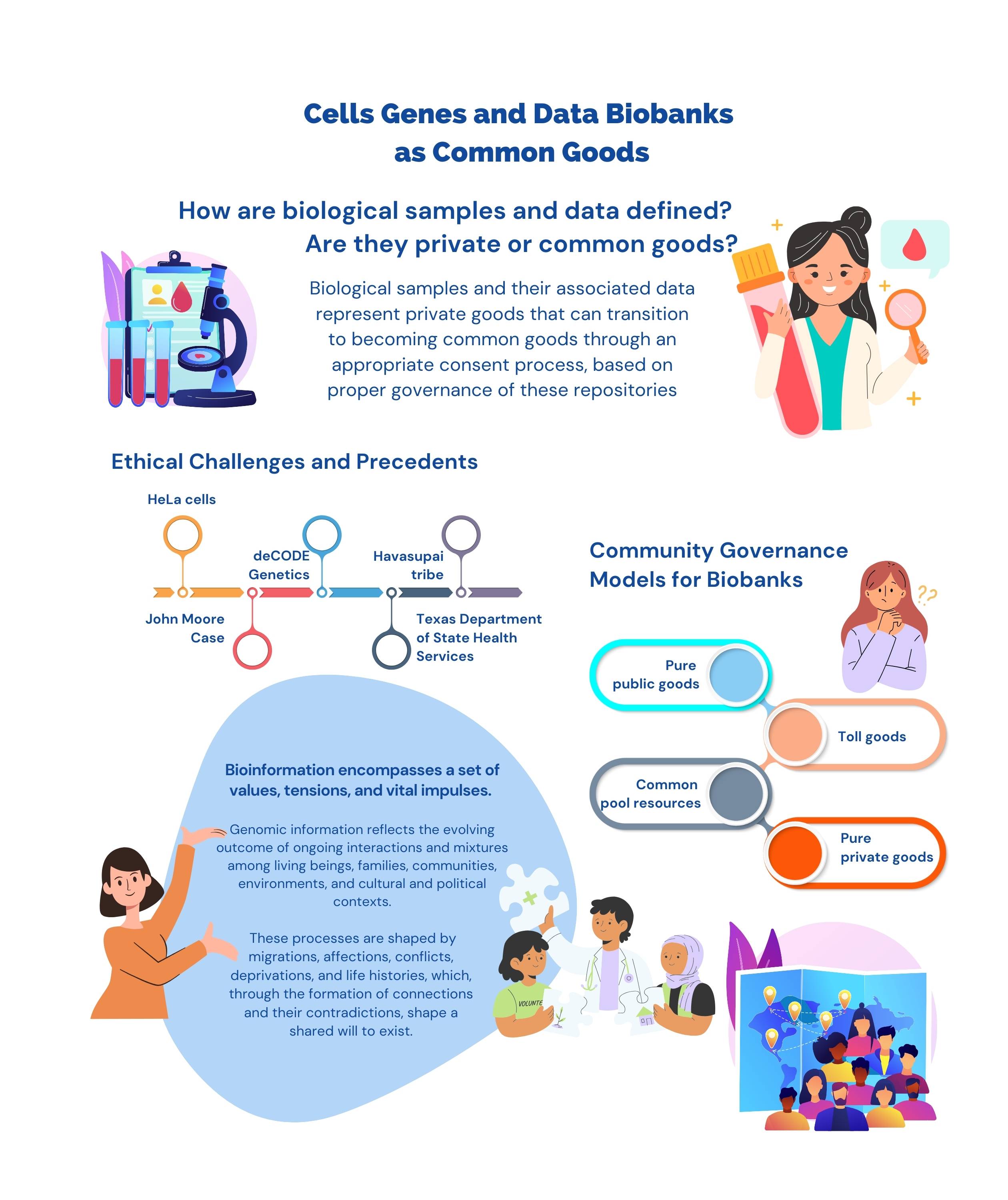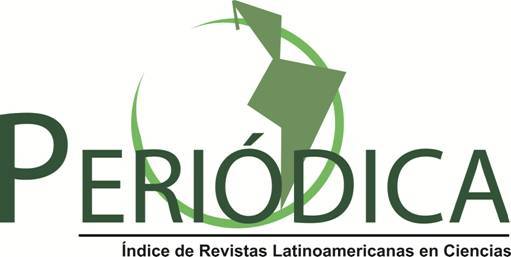Cells, Genes and Data: Biobanks as Common Goods
DOI:
https://doi.org/10.18633/biotecnia.v26.2374Keywords:
Ethics; Bioethics; human rights; Law, Biological Specimen Banks, Community-Based Participatory Research, Tissue PreservationAbstract
Contemporary biomedical research, propelled by bioinformatics, has revolutionized the ex-ploration of the world through the collection and analysis of data from various biological materials. These advancements have given rise to ethical challenges, such as transformations in the practice of informed consent, issues related to privacy, equitable access to research benefits, and the privatization of genetic information. In this context, the governance of biobanks introduces ethical and legal tensions between liberal and communitarian perspectives. The privatization of biomaterials hinders global col-laboration and restricts the involvement of developing countries. Experiences of community-based governance in Norway, New Zealand, Argentina, and other cases suggest alternative models. Commu-nity-based governance of biobanks emerges as an ethical approach that acknowledges cultural values such as privacy, cooperation, and active community participation in decision-making.
Downloads
References
Allyse, M.A., McCormick, J.B. and Sharp, R.R. 2015. Prudentia populo: Involving the communi-ty in biobank governance. American Journal of Bioethics, 15(9), pp. 1-3. doi: 10.1080/15265161.2015.1062175.
Alvarellos, M., Sheppard, H.E., Knarston, I., Davison, C., Raine, N., Seeger, T., Prieto Barja, P. and Chatzou Dunford, M. 2023. Democratizing clinical-genomic data: How federated platforms can promote benefits sharing in genomics. Frontiers in Genetics, 13. doi: 10.3389/fgene.2022.1045450.
Beaton, A., Hudson, M., Milne, M., Port, R., Russell, K., Smith, B., Toki, V., Uerata, L., Wilcox, P., Bartholomew, K. and Wihongi, H. 2016. Engaging Māori in biobanking and genomic research: A model for biobanks to guide culturally informed governance, operational, and community engagement activities. Genetics in Medicine, 19. doi: 10.1038/gim.2016.111.
Carmichael, M. 2011. Newborn screening: a spot of trouble. Nature, 475(7355), pp. 156-158. doi: 10.1038/475156a.
Carmichael, N., Tsipis, J., Windmueller, G., Mandel, L. and Estrella, E. 2015. Is it Going to Hurt?: The Impact of the Diagnostic Odyssey on Children and Their Families. Journal of Genetic Counseling, 24, pp. 325-335. doi: 10.1007/s10897-014-9773-9.
Chandrashekar, C., Shetty, S.S. and Radhakrishnan, R. 2022. Evolution of biobanks and ethical governance for the emerging applications in biomedical research. Journal of Oral and Maxillofacial Pa-thology, 26(4), pp. 433-439. doi: 10.4103/jomfp.jomfp_478_22.
CIOMS. 2016. International Ethical Guidelines for Health-related Research Involving Humans. ISBN: 978-92-9036088-9.
Cohn, E., Henderson, G., Appelbaum, P., et al. 2017. Distributive justice, diversity, and inclusion in precision medicine: what will success look like? Genetics in Medicine, 19, pp. 157-159. doi: 10.1038/gim.2016.92.
Congreso de la República de Colombia.2022. Ley 2253 de 2022. "Por medio del cual se crea el Registro Nacional Público Oficial de Donantes de Células Progenitoras Hematopoyéticas y se dictan otras disposiciones - Ley Jerónimo."
Coppola, L., Cianflone, A., Grimaldi, A.M., et al. 2019. Biobanking in health care: evolution and future directions. Journal of Translational Medicine, 17(1), p. 172. doi: 10.1186/s12967-019-1922-3.
Emanuel, E.J., Grady, C., Crouch, R.A., Lie, R., Miller, F. and Wendler, D. (eds). 2008. The Ox-ford Textbook of Clinical Research Ethics.Oxford University Press. New York.
Etzioni, A. 2004. DNA tests and databases in criminal justice: Individual rights and the common good, in Lazer, D. (ed.) DNA and the Criminal Justice System: The Technology of Justice. MIT Press, pp. 197-223. Cambridge.
Garrett, S.B., Koenig, B.A., Brown, A., Hult, J.R., Boyd, E.A., Dry, S., ... and Dohan, D. 2015. EngageUC: Developing an efficient and ethical approach to biobanking research at the University of California. Clinical and Translational Science, 8(4), pp. 362-366. doi: 10.1111/cts.12259.
Goold, I., Greasley, K., Herring, J. and Skene, L. (eds). 2014. Persons, Parts and Property: How Should we Regulate Human Tissue in the 21st Century? Bloomsbury Publishing. New York.
Goold, I., Greasley, K., Herring, J.J.W. and Skene, L. 2014. Introduction to "Persons, Parts and Property", in Goold, I., Herring, J., Skene, L. and Greasley, K. (eds) Persons, Parts and Property: How Should we Regulate Human Tissue in the 21st Century? Oxford: Hart, pp. 1-11. Disponible en: https://ssrn.com/abstract=3826231 (Accedido: 10 junio 2024).
Kaye, J., Curren, L., Anderson, N., Edwards, K., Fullerton, S.M., Kanellopoulou, N., and Winter, S.F. 2012. From patients to partners: Participant-centric initiatives in biomedical research. Nature Re-views Genetics, 13(5), pp. 371-376. doi: 10.1038/nrg3218.
Laurie, G. 2002. Genetic Privacy: A Challenge to Medico-Legal Norms. Cambridge University Press. New York.
Lesser, W. 2017. Whither the Research Anticommons? From Agriscience to Agribusiness: Theo-ries, Policies and Practices in Technology Transfer and Commercialization, pp. 131-144. doi: 10.1007/978-3-319-67958-7_7.
Lluch Roselló, C. and Ramón Fernández, F. 2017.El caso Moore y la prestación del consenti-miento informado en investigación médica. Derecho y Salud, 27(2), pp. 55-84.
Merz, J.F., McGee, G.E. and Sankar, P. 2004."Iceland Inc."?: On the ethics of commercial popu-lation genomics. Social Science & Medicine, 58(6), pp. 1201-1209. doi: 10.1016/s0277-9536(03)00256-9.
O'Brien, S.J. 2009. Stewardship of human biospecimens, DNA, genotype, and clinical data in the GWAS era. Annual Review of Genomics and Human Genetics, 10(1), pp. 193-209. doi: 10.1146/annurev-genom-082908-150133.
O'Doherty, K.C., Hawkins, A.K. and Burgess, M.M. 2012. Involving citizens in the ethics of bi-obank research: Informing institutional policy through structured public deliberation. Social Science & Medicine, 75(9), pp. 1604-1611. doi: 10.1016/j.socscimed.2012.06.026.
Osorio, H. and Lara, A. 2013. La tragedia de los anticomunes en la construcción del conocimiento del genoma humano. Argumentos (México, D.F.), 26(73), pp. 147-171. Disponible en: http://www.scielo.org.mx/scielo.php?script=sci_arttext&pid=S0187-57952013000300009&lng=es&tlng=es (Accedido: 10 junio 2024).
Ostrom, E., Gardner, R. and Walker, J. 1994. Rules, games, and common-pool resources. Ann Arbor, University of Michigan Press.
Penchaszadeh, V.B. 2011. Forced Disappearance and Suppression of Identity of Children in Ar-gentina: Experiences in Genetic Identification, in Gibbon, S., Santos, R.V. and Sans, M. (eds) Racial Identities, Genetic Ancestry, and Health in South America. Palgrave Macmillan. doi: 10.1057/9781137001702_11.
Pinto-Bustamante, B.J. 2021. Bioética, biomedicina y economías de la vida: hacia una ética de la corresponsabilidad. Editorial Universidad El Bosque. Bogotá.
Resnik, D.B. 2004. Owning the Genome: A Moral Analysis of DNA Patenting. Albany: State University of New York Press.
Rhodes, R. 2008. In defense of the duty to participate in biomedical research. American Journal of Bioethics, 8, pp. 37-44.
Skloot, R. 2010. The Immortal Life of Henrietta Lacks.Random House Audio. New York.
Thornton, H. 2009. The UK Biobank project: Trust and altruism are alive and well: A model for achieving public support for research using personal data. International Journal of Surgery, 7(6), pp. 501-502. doi: 10.1016/j.ijsu.2009.09.001.
Ursin, L. and Solberg, B. 2009. The Health Dugnad: Biobank Participation as the Solidary Pursuit of the Common Good, in Solbakk, J., Holm, S. and Hofmann, B. (eds) The Ethics of Research Bi-obanking. New York: Springer. doi: 10.1007/978-0-387-93872-1_15.
Vallejo, I. 2021. El infinito en un junco. Siruela. Bogotá.

Downloads
Additional Files
Published
How to Cite
Issue
Section
License
Copyright (c) 2023

This work is licensed under a Creative Commons Attribution-NonCommercial-ShareAlike 4.0 International License.
The journal Biotecnia is licensed under the Attribution-NonCommercial-ShareAlike 4.0 International (CC BY-NC-SA 4.0) license.




_(1)_(1).png)






_(2).jpg)




